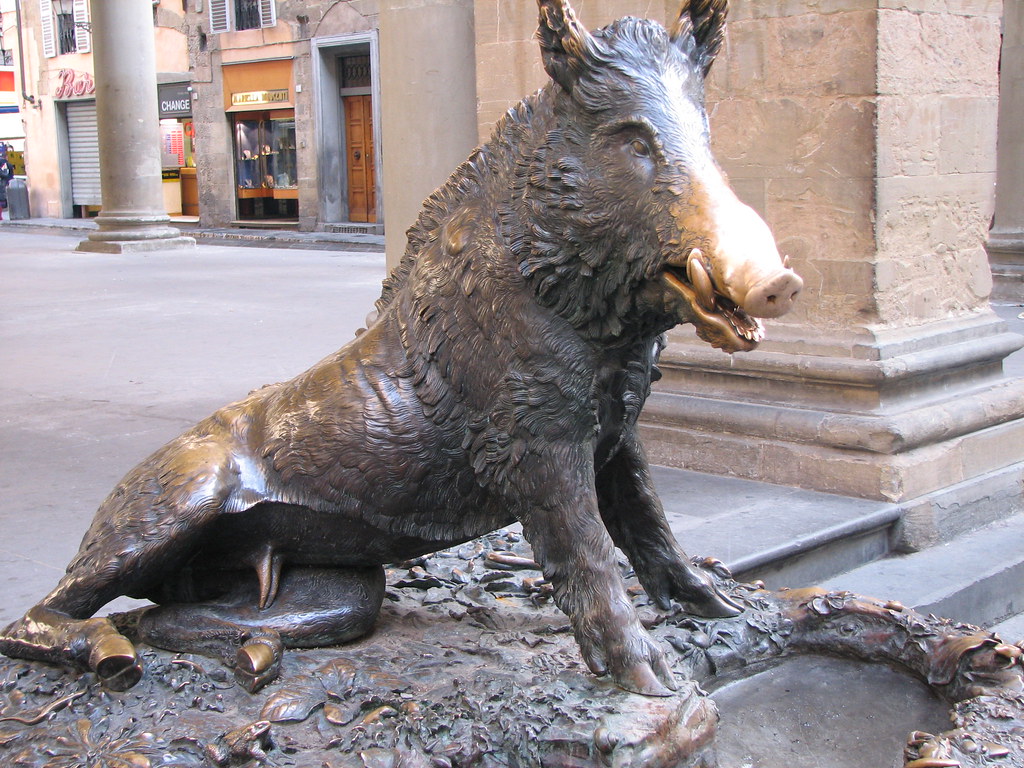
Wild Boar statue in Florence if you rub his nose, accordin… Flickr
From Wikipedia, the free encyclopedia Pietro Tacca 's bronze Porcellino (Museo Bardini) Il Porcellino (Italian "piglet") is the local Florentine nickname for the bronze fountain of a boar.
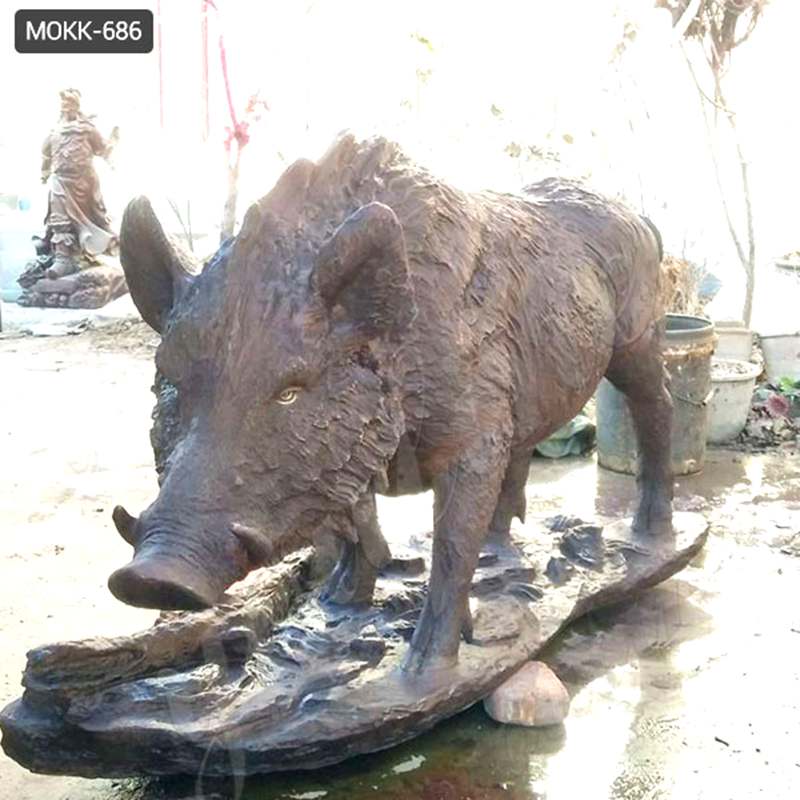
Bronze Wild Boar Statue Florence Decor YouFine Bronze Sculpture
The Wild Boar of Florence is a life-sized bronze statue depicting a mythological Greek boar that was cast using a plaster mold dating back to 1612. The original bronze statue, nicknamed il Porcellino (the small pig), was turned into a fountain and showcased in a public market in Florence, Italy in 1640.

The wild boar of Florence editorial image. Image of snout 44583965
The wild boar fountain in Florence is a popular attraction in Florence. Rub the pig's snout and you are ensured a return visit to Florence!
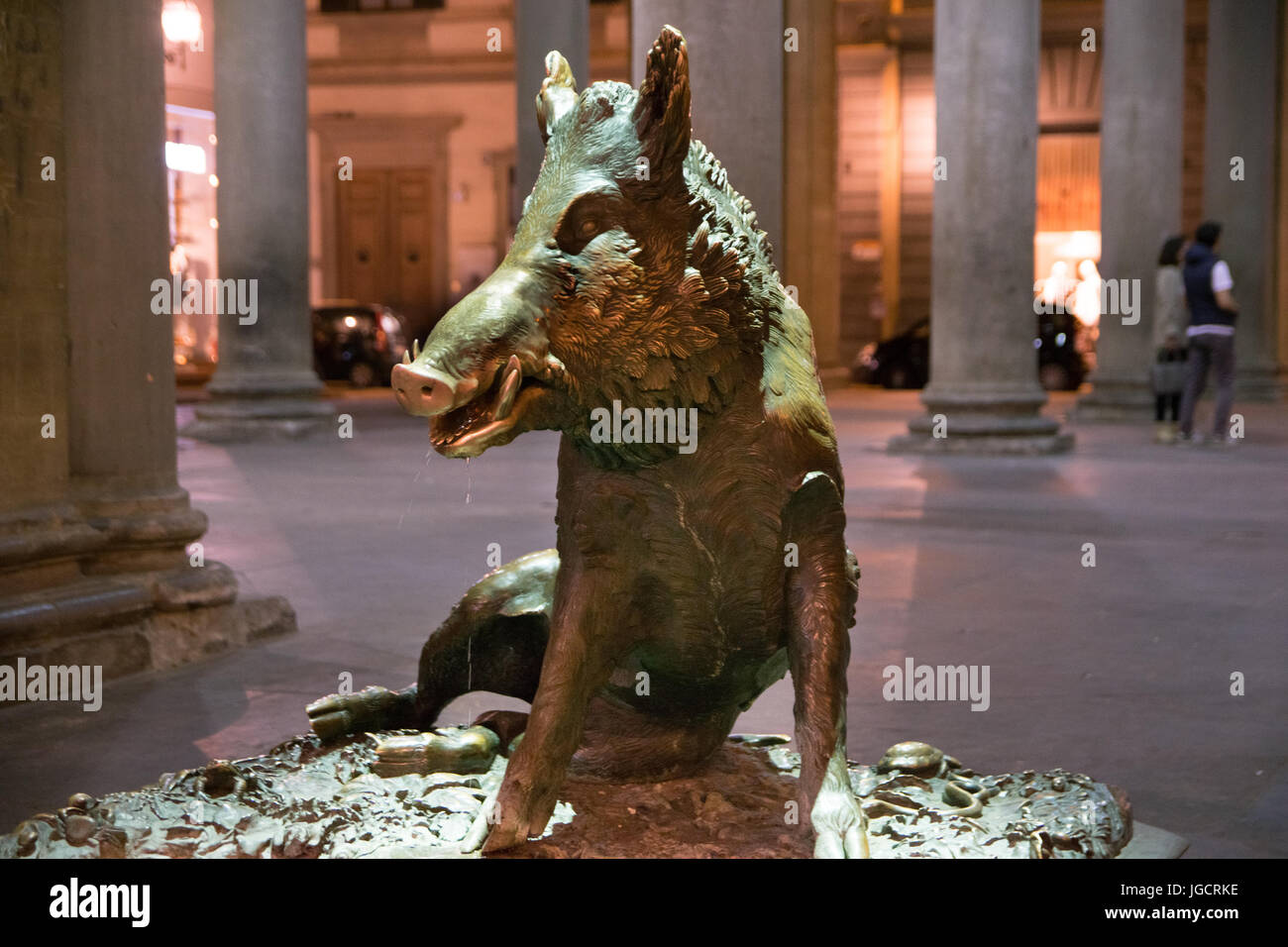
Wild Boar Statue on the New Market Square in Florence at Night, Italy
Il Porcellino is the local Florentine nickname for the bronze fountain of a boar. The fountain figure was sculpted and cast by Baroque master Pietro Tacca (1577-1640) following a marble Italian copy of a Hellenistic marble original that Pope Pius IV donated to Cosimo I in 1560 during his visit to Rome.

Wild Boar Statue Florence Zeichnungen
The Piazza del Mercato Nuovo is the site of this famous bronze statue of a wild boar, a symbol of Tuscany and tourist attraction. Some put coins in his mouth, but if I'm informed correctly, you put your hand in the mouth being careful to wish that you will return to Florence or you'll be bitten.

A bronze statue of a wild boar in a seated postition at the edge of a
Bronze Boar Statue (Il Porcellino) in Florence. Apr 2015 • Couples. One of the fun things to find in Florence is the Bronze Boar (Fontana del Porcellino) found at the small Mercato Nouvo. Local legend has it that if you rub the pig's nose, you will have good luck.
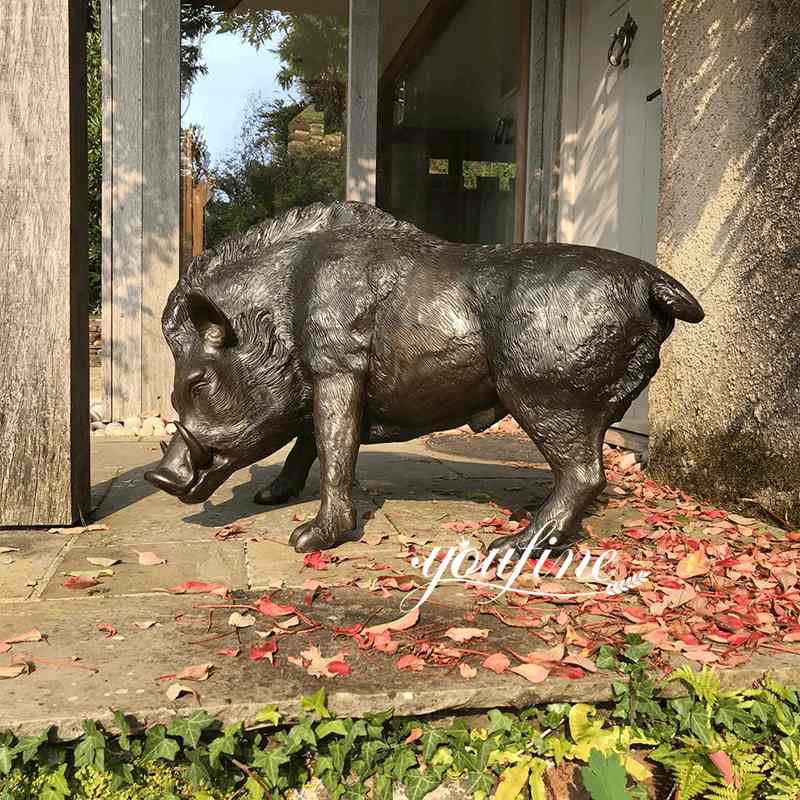
Why Is The Boar Statue A Symbol of Florence YouFine Bronze Sculpture
The present statue is a modern copy, while Tacca's bronze is sheltered in the new Museo Bardini in Palazzo Mozzi.Visitors to Il Porcellino put a coin into the boar's gaping jaws, with the intent to let it fall through the underlying grating for good luck, and they rub the boar's snout to ensure a return to Florence, a tradition that the English.
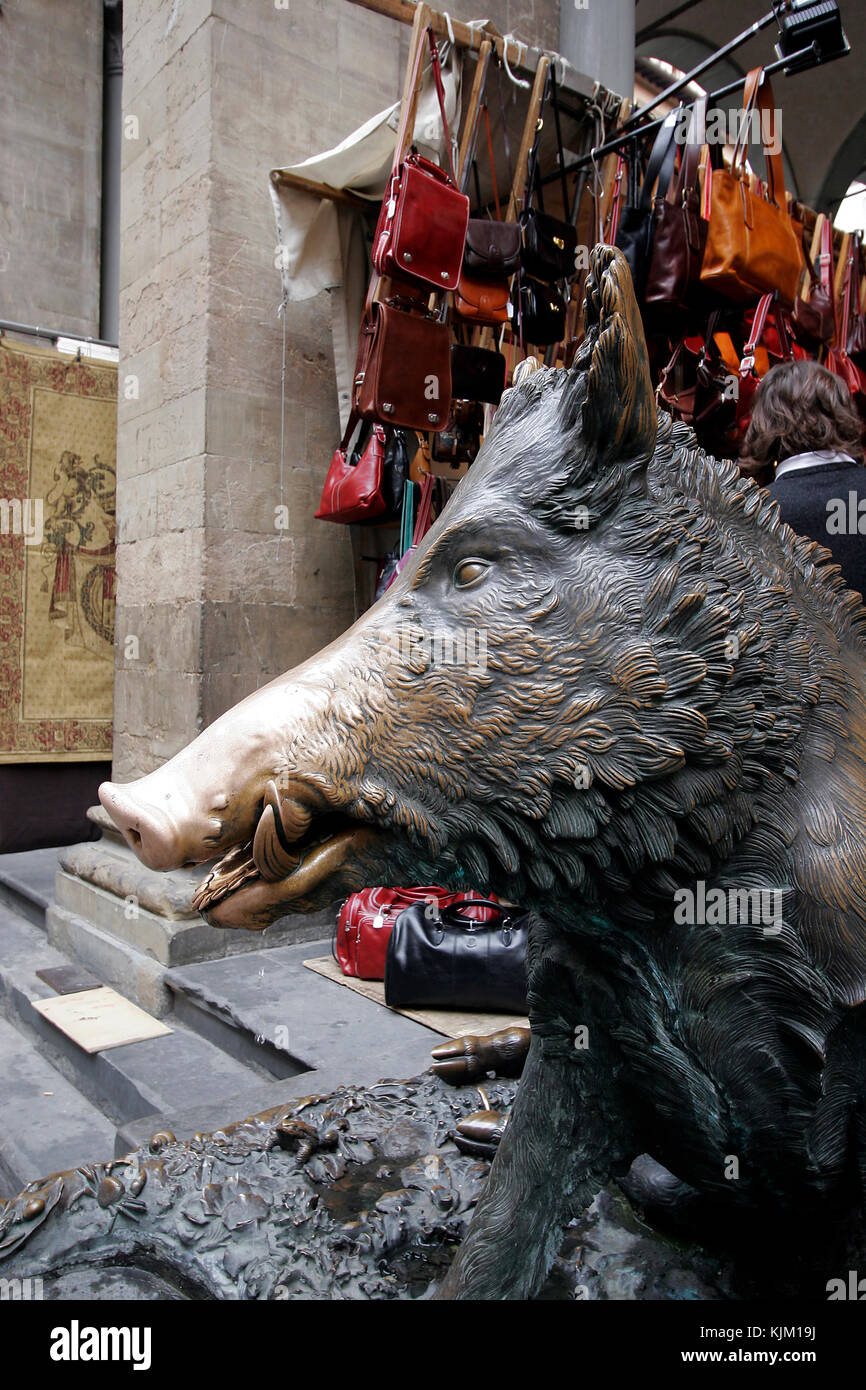
Florence market statue boar hires stock photography and images Alamy
Mercato Nuovo He supposedly brings good luck when visitors rub his snout (hence the shiny part) and slides a coin from his mouth. The water washes the coin from the pig's mouth and if it falls into the grate below, you will have good luck and you will be sure to return to Florence.

Statue of a Boar Called `Il Porcellino` in Florence Editorial Stock
While Florence saw the birth of its cultural renaissance, a statue known as the Porcellino assumed the role of talisman of good luck.. After a trip to the city, Andersen was so fascinated by the statue depicting the wild boar and its meaning that he decided to dedicate "The Little Pig of bronze. The story tells of a poor child who, hungry.

Vintage Porcellino Wild Boar of Florence figurine statue Etsy
The original boar statue was discovered in Rome and moved to Florence by the Medici family in the middle of the 16th century.

The Uffizi Boar Sculpture Sculptured Arts Studio
The bronze statue's popular name 'Porcellino' (piglet) is technically incorrect as the statue actually depicts a boar. The fountain today is a copy of Pietro Tacca's (1633) work, which is itself a copy of a Hellenistic marble statue kept in the Uffizi Galleries.

Florence boar by MalaAssia on DeviantArt
The Boar is one of the most popular sculptures in the Gallery and owes most of its fame to a more famous 17th-century copy in bronze (the so-called "Porcellino" or "Piglet"), realized for Cosimo II de' Medici by sculptor Pietro Tacca, and placed in the Loggia of the Mercato Nuovo.
I'll tell you the story of a LonDoN GiRL... ♥ Be sure to rub the boar
The first bronze boar fountain was made in 1634 and rubbing the snout for good luck was mentioned as far back as the 1700s. The bronze statue was a copy of a Roman marble statue which was a gift from the Pope to the Medici in the 1560s. And that statue was a copy of a Greek statue from antiquity.
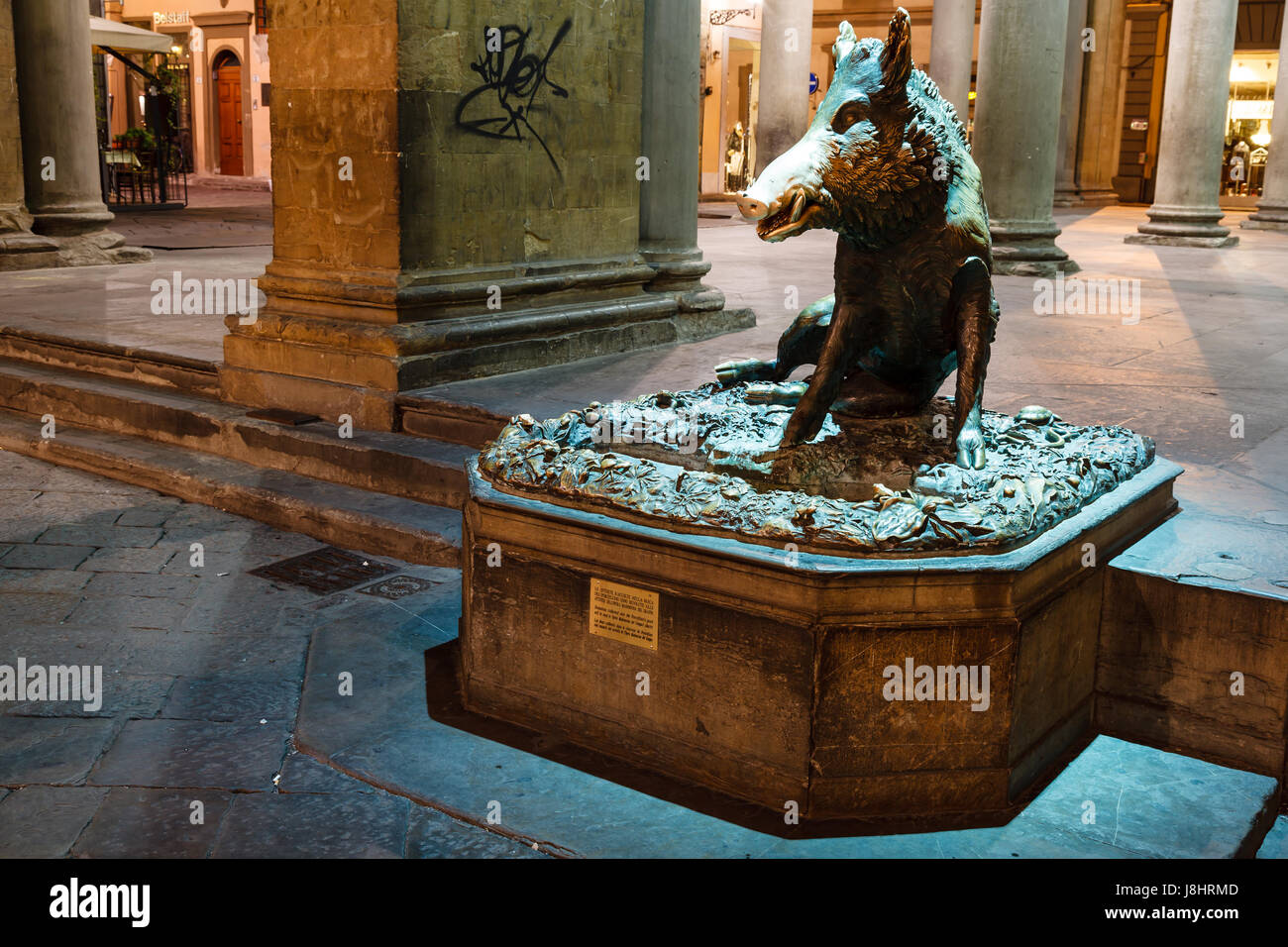
Wild Boar Statue on the New Market Square in Florence at Night, Italy
Florentines call this market Il Porcellino (Little Pig) due to the wild boar fountain located at the marketÍs south side. The statue, created in 1612 by Pietro Taccas, was cast from a marble Hellenistic original that is now housed in the Uffizi Gallery. Many tourists come to rub the pigÍs well-polished snout and throw a coin in the fountain.

Head of Wild Boar Statue in Florence Stock Image Image of good, head
Visit the enchanting Ponte Vecchio and stroll among its famous jewelers. Stop by the interesting Porcelino statue, a wild boar that is rumored to bring luck, before seeing magnificent Republic Square. Learn about the sights and the history of Florence from your knowledgeable guide. Visit the Uffizi Gallery and admire the highlights of the museum.

Il Porcellino Florence Italy Boar Statue by Gregory Dyer Statue
The famous statue we see in the New Market in Florence is not the original, but a copy.. In it, he explains how through the boar's mouth water falls, because it is a fountain and everyone who wanted to drink from the fountain, put the hand on the boar's snout. That's why it began to shine, because bronze is polished over time and the more it.